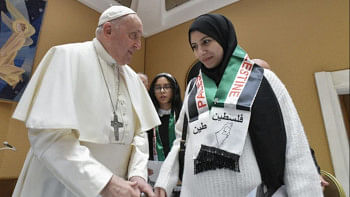UN reopens talks on defining 'killer robots'
A new round of talks on the use of so-called killer robots reopened at the United Nations yesterday, with a focus on defining the characteristics of autonomous lethal weapons.
The world body hosted the first-ever killer robot negotiations last year and agreed to move forward, even if a treaty governing the use of such weapons remains a distant prospect.
Activists say time is running out before weapons are deployed that use lethal force without a human making the final kill-order and have criticised the UN body hosting the talks -- the Convention of Certain Conventional Weapons (CCW) -- for moving too slowly.
But they still praised the resumption of the UN talks.
"It is a much more focused discussion now," said Richard Moyes, co-founder of the Campaign to Stop Killer Robots.
Nations "are getting down to the business of describing the level of human control that is needed over (lethal weapons) systems," added Moyes, also a member of the 2017 Nobel Peace winning International Campaign to Abolish Nuclear Weapons.
For Moyes, it is crucial that states agree a human using any weapons "has to know where force is going to actually be applied and when force is going to be applied".
The number of states that have called for an outright killer robot ban has mounted, while concern in the private sector and academia has grown over the threat posed by weapons that entirely rely on machine intelligence in deciding what to kill.

 For all latest news, follow The Daily Star's Google News channel.
For all latest news, follow The Daily Star's Google News channel. 



Comments